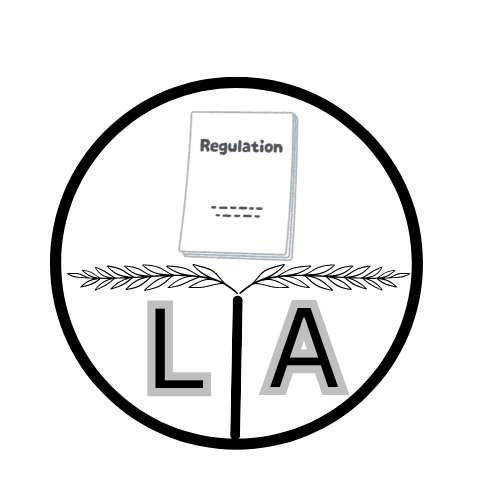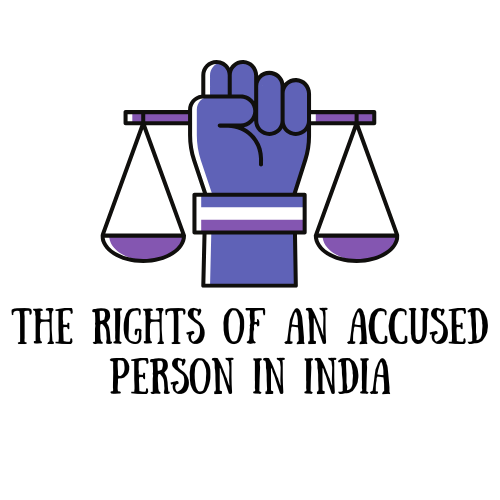The rights of an accused person in India
The rights of an accused person in India
The rights of an accused person in India
Welcome to Law Adhoc Tutorials !
These notes are in easy language and easy to remember.
Law Adhoc Tutorials is an education platform. It helps law students get high quality notes to make their study easier. Law Adhoc Tutorials provides full and completes notes for free for each subjects of law.
The rights of an accused person in India
The rights of an accused person in India
The rights of an accused person in India
THE RIGHTS OF AN ACCUSED PERSON IN INDIA
Introduction
Every person, including the accused or convicted criminals, has basic human rights grounded in dignity and fairness. An accused individual is charged with a crime but not yet proven guilty. In India, a fair trial is a constitutional right, meaning the accused is considered innocent until proven guilty. Their rights include access to a fair trial, bail, and legal representation.
The rights of an accused person in India – Indian Constitution
Rights of an accused
Constitutional rights
The Constitution of India guarantees fundamental rights to all citizens, including those accused of crimes. Article 14 ensures equality before the law, meaning all individuals, regardless of their accused status, are treated equally.
Protection against retrospective provisions of an Act {Article 20(1)}:
Article 20(1) protects against retrospective legislation, ensuring no one is convicted for acts that were not crimes at the time they were committed.
Right to protection against double jeopardy {Article 20(2)}:
Article 20(2) provides protection against double jeopardy, stating that a person cannot be tried twice for the same offense.
Right to protection against self-incrimination {Article 20(3)}:
Lastly, Article 20(3) safeguards against self-incrimination, ensuring that no accused individual can be forced to testify against themselves. This protection extends to suspects and witnesses, preserving their rights during investigations.
Right to be Released on Bail:
Bail is the general practice, while being in jail is the exception. The Supreme Court says that bail helps keep the accused out of jail, lightens the state’s responsibility, and makes sure the accused stays under the court’s control. Undertrial prisoners can also get legal help to apply for bail.
Right to Know the Reason for Arrest (Article 22(1)):
Article 22(1) states that when someone is arrested, they must be informed quickly about why they were arrested and have the right to talk to a lawyer of their choice.
Right to Engage an Advocate (Article 22(1)):
Anyone accused has the fundamental right to consult and be defended by a lawyer of their choice. This ensures they receive fair legal representation.
Right to Free Legal Aid (Article 39-A):
In M.H. Hoskot v State of Maharashtra, the Supreme Court affirmed that if a prisoner cannot hire a lawyer due to reasons like poverty or communication barriers, the court must appoint competent counsel for the defense, given the circumstances justify it, and the individual does not object.
Right to be Presented Before the Magistrate (Article 22(2)):
Every arrested person must be presented before a Magistrate within twenty-four hours of arrest, excluding travel time. Detention beyond this period requires the Magistrate’s authority, safeguarding against unlawful arrests as supported by Sections 56 and 57 of the CrPC.
Right to Appeal (Articles 132, 134, and 136):
The right to appeal is a constitutional and statutory right, enabling individuals to contest lower court decisions.
Right to be free from torture and maltreatment {Article 21}:
In Sunil Batra (2) v. Delhi Admn[22], the Supreme court held that Article 21 prohibited mental torture, physical pressure and physical infliction and torture beyond the limits of lawful imprisonment.
The rights of an accused person in India in CPC
Rights under code of criminal procedure
The Code of Criminal Procedure has many provisions expanding about the rights of accused. They are as follows:
- Presence of the Accused: According to Section 273 and Section 279 of the Code of Criminal Procedure (CrPC), the accused has the right to be present during their trial. This is essential for a just legal process, allowing individuals to participate in their defense.
- Right to Defense : Sections 240, 243, and 247 of the CrPC outline the accused’s right to defend themselves. The accused has the opportunity to plead not guilty when asked, and the court must consider this plea when framing charges.
- Framing of Charges (Section 240) : Before proceeding with a trial, the Magistrate must assess whether there is sufficient evidence to presume that the accused has committed an offense that falls under their jurisdiction. If grounds exist, the Magistrate will frame the charges in writing against the accused.
- Right to Open Court Trials (Section 327) : Every accused has the right to a trial conducted in open court to maintain transparency. Public attendance, including journalists, is generally permitted; however, the court retains the authority to limit admission based on available space. In specific circumstances, trials can be held in camera to protect sensitive information.
Right to Remain Silent (Section 161, Article 20(3)) : Individuals are not required to answer police questions, protecting their privacy.
- Right Relating to Statements (Sections 161, 162) : Written statements to the police should not be signed and can only be used for specified purposes.
- Right to Be One’s Own Witness (Sections 313, 315, 316) : Accused individuals cannot be compelled to testify against themselves, including regarding any active investigations or charges.
- Right Against Double Jeopardy (Section 300) : No one can be tried or punished more than once for the same offense, but the accused must prove their previous conviction.
- Right that sanction be obtained before prosecution for certain offences (Section 196 and 197):No cognizance can be taken by any court of the following offences without the previous sanction of the Central or State Government:
- Offenses under Chapter 6 IPC.
- Offenses under Sections 153-A, 295-A, 505(1) and criminal conspiracy for such offenses and abetment in India under Section 108 IPC in regard to an offence committed outside India (Section 1969(1) Cr PC).
- Section 153-B, Sections 505(2), 505(3) or conspiracy to commit such offenses (Sections 136(1-A) Cr PC.
- Criminal conspiracy to which Section 120-B applies (Section 196(2) Cr PC).
- Right to Privacy of a Woman Accused (Section 46 and 54) : The privacy of a female accused must be respected, prompting amendments to the existing provisions of the Criminal Procedure Code.
- Right Not to Be Subjected to Illegal Arrest or Detention (Section 41, 60-A and 167).
- Right to Meet an Advocate of Choice During Interrogation (Section 41-D).
- Right to Obtain Free Copy of the Judgment (Section 363 Cr PC) .
- Right to Have a Fair Trial.
- Right to Be Released on Probation (Section 360) : Courts must maintain a record of reasons for not granting probation.
- Right to Represent Against Punishment to Be Awarded (Sections 235(2), 248(2), and 360) : The convicted individual has the right to be heard before punishment is determined (Section 235). If special reasons are available, they may be presented before sentencing, and representation regarding punishments arises only upon conviction.
- Right to Be Released on Bail.
- Right to Take Advantage of the Period of Limitations (Section 468).
- Right to Produce and Examine Witnesses in Defense (Sections 240, 243, and 247)
In, Nandini Sathpathy v. P.L.Dani 1978 SCR (3) 608,wherein it was held that no one can forcibly extract statements from the accused and that the accused has the right to keep silent during the course of interrogation (investigation).
Role of judiciary in protecting the rights of prisoners
Rights against Solitary Confinement and Bar Fetters
The courts strongly oppose solitary confinement, viewing it as degrading and dehumanizing. It should only be used in exceptional cases where a convict poses a significant danger. In Sunil Batra (1), the Supreme Court addressed the validity of solitary confinement and also condemned the use of bar fetters on prisoners, stating that such treatment reduces individuals to an animal-like state and is cruel and unconstitutional.
Rights against Inhuman Treatment of Prisoners
Human rights are fundamental to human dignity, and the Supreme Court of India has actively addressed the inhumane treatment of prisoners. The Court has mandated that prison and police authorities protect the rights of those in custody, interpreting the right against torture as encompassed within Articles 14 and 19 of the Constitution. It stated that treatment undermining human dignity and inflicting unnecessary suffering can be challenged under Article 14.
In Raghubir Singh v. State of Bihar, the Court condemned police torture, upholding the life sentence of an officer responsible for a detainee’s death. Similarly, in Kishore Singh v. State of Rajasthan, the use of third-degree methods was ruled violative of Article 21, which guarantees the right to life.
Right to have Interview with Friends, Relatives and Lawyers
The scope of human rights is expanding, particularly regarding prisoners. Beyond protecting against physical torture, there’s growing recognition of the need to prevent mental suffering. Article 21’s Right to Life and Personal Liberty encompasses more than mere survival; it includes the right to communicate with family and friends.
Article 22(1) secures the right to consult a legal practitioner of choice, as supported by Section 303 of the Code of Criminal Procedure. The Supreme Court has affirmed that this right begins at arrest, allowing for the choice of a lawyer.
Right to Speedy Trial
The right to a speedy trial is essential in the criminal justice system. It ensures that once a court acknowledges an allegation, the trial occurs promptly. This protects the innocent and delivers justice to the guilty.
Delays in trials can lead to a denial of justice, as captured in the phrase “justice delayed is justice denied.” Timely proceedings are crucial, especially for those denied bail, to prevent unnecessary imprisonment. The right to a speedy trial is recognized worldwide as a fundamental human right that promotes fairness and efficiency in the judicial process.
Rights against Hand Cuffing
In Prem Shanker vs. Delhi Administration, the Supreme Court examined whether handcuffing prisoners is constitutional under Article 21, which protects personal liberty. The court ruled that routine handcuffing is inhuman, unreasonable, and outdated, rejecting any distinctions between classes of prisoners. This decision emphasizes the need for fair procedures and aims to protect prisoners’ dignity, marking an important advancement in prison reform and prisoner rights.
Narco Analysis/Polygraph/Brain Mapping
In Selvi vs. State of Karnataka (2010), the Supreme Court ruled that Narcoanalysis, Polygraph tests, and Brain Mapping are unconstitutional and violate human rights. These tests can only be conducted with consent and their results are not admissible in court, leading to concerns for investigations.
The rights of an accused person in India
Education of Prisoners Notes : https://lawadhoctutorials.com/education-of-prisoners/
Vocational Training for Prisoners notes : https://lawadhoctutorials.com/vocational-training-for-prisoners-in-india/
The rights of an accused person in India
Rights and Duties of Prisoners notes :- https://lawadhoctutorials.com/rights-and-duties-of-prisoners/
Model Prison Act Notes : https://lawadhoctutorials.com/model-prisons-act-2003/
The rights of an accused person in India
All subjects law notes : https://lawadhoctutorials.com/subject/
All subjects law notes in pdf : https://lawadhoctutorials.com/notespdf/
The rights of an accused person in India
Law of torts lecture link on YouTube: https://youtu.be/fRx-i5fk3jo?si=QPnyduoa3IeZoI5W
Free and easy to access law notes. The law notes are available for all law subjects. Please check the below-mentioned list for complete law notes.
The rights of an accused person in India
Click on the specific subject to view its notes.



